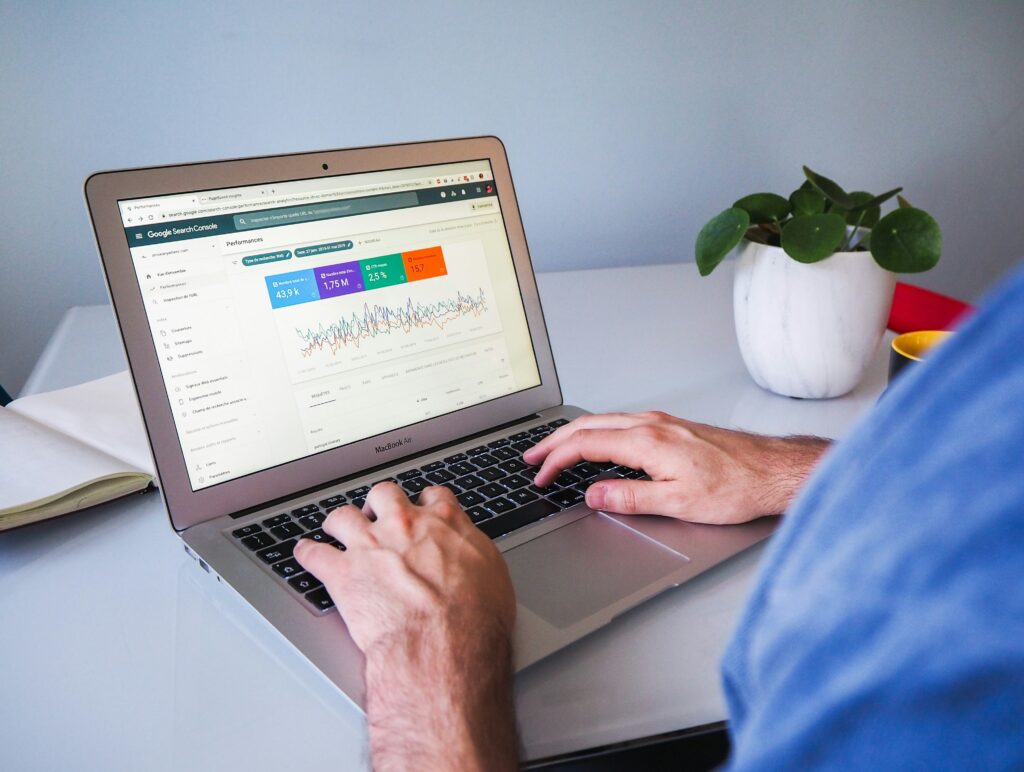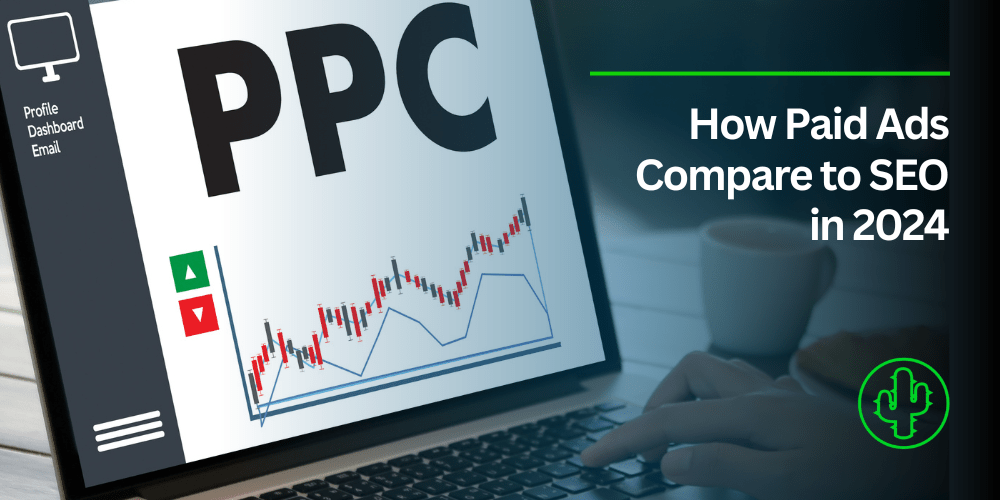SEO and paid advertising are both integral components of a comprehensive digital marketing strategy, each offering distinct advantages for businesses navigating the digital landscape in 2024. Deciding which avenue to prioritize and determining the optimal investment allocation for each can significantly impact your company’s online visibility and growth.
Our detailed guide delves into the nuances of paid advertising versus SEO in the context of 2024’s digital marketing environment. We will explore the operational mechanisms behind each strategy, highlighting their respective benefits and potential drawbacks. Furthermore, our discussion will provide insights on how to effectively blend SEO and paid advertising efforts within your digital marketing strategy to enhance revenue generation and achieve a competitive edge.
By understanding the unique value and application of each method, businesses can make informed decisions that align with their marketing objectives, budget constraints, and target audience preferences, ultimately driving sustained online success.
About SEO
SEO (search engine optimization) is used to help your website rank higher on Google’s organic listings. It’s generally divided into on-page, and off-page SEO:
On-page SEO describes optimizing your website to appeal to Google’s algorithm. This could mean including more keywords, organizing your website more effectively, and speeding up your website’s loading times.
Off-page SEO involves improving your website’s authority by working with external entities. One of the most popular types of off-page SEO is backlinking. This means encouraging other high-trust websites to link to your web pages.
Organic ranking is how highly Google places your website on its SERP (search engine results page) without paying for the top spot. Paid ads often fill the top spots on Google, but organic rankings are longer-lasting and generally more valuable.
What’s So Great About SEO?
SEO is a strategic approach to digital marketing that requires patience and consistency. It’s a common misconception that a single piece of well-crafted content, rich in the right keywords, will immediately elevate your website to the top of search engine results. In reality, achieving a high SERP ranking demands ongoing investment in SEO. Regularly producing quality content and optimizing your website helps build your site’s credibility with Google, demonstrating that you’re a reliable and authoritative source in your field.
The advantage of SEO compared to paid ads is that if you reach the top spot organically, you’ve established a very solid position. Just as you don’t gain top SERP rankings overnight, you don’t lose that spot overnight. You’ve made it there through hard work, consistency, and careful optimization, and Google respects that.
Being ranked in the top spot is its own reward, but it has additional benefits. Other sites looking to boost their authority scores will be more likely to use you as a reference, making backlink campaigns easier and cheaper. It takes time, but it’s well worth the patience and investment.
Drawbacks of SEO
Good SEO takes time. It means consistently spending money on services that won’t yield immediate results and may appear unprofitable. Paid ads can seem like a much better alternative because they dramatically increase traffic by putting you at the top spot instantly.
You’ll also need to work with an expert SEO agency or hire someone internally to yield the best results. Those with the expertise and experience to consistently improve your website’s performance are a rare breed. It pays to understand what SEO entails and ask questions about an agency’s track record before entering a long-term partnership.
When to Use SEO
Are you aiming to build a thriving, long-lasting online business? Furthermore, do you aspire for your website to become a go-to source of authoritative information? If the answer is yes, and you would appreciate the advantages of appearing prominently in search results whenever potential customers search for services or products similar to yours, then SEO is undeniably essential for you.
In light of this, consider allocating a portion of your quarterly marketing budget to SEO; the return on this investment can be significant. By engaging with an SEO expert who can conduct a comprehensive audit of your website, you’ll uncover crucial areas for improvement. Ultimately, embracing a long-term SEO strategy is a wise move, promising enduring benefits for your online presence.
About Paid Ads
Paid ads are also known as PPC ads (pay-per-click). They allow you to appear at the top of Google’s SERP without long-term, organic growth. This makes them extremely attractive to marketers as they can yield immediate results.
What’s So Great About Paid Ads?
Well-placed paid ads can direct high volumes of traffic to your website and provide a huge sales boost in the short term. They don’t cost money unless someone clicks on them, making them a cost-effective marketing strategy.
They’re excellent when used in conjunction with flash sales and in-season products. For example, say you run a garden center. Placing paid ads in spring gives you a great chance of being seen by shoppers who are keen to add to their gardens at this time of year.
Drawbacks of Paid Ads
The cost of PPC ads depends on how much traffic the keyword attracts. High-traffic and non-specific keywords, e.g., “t-shirts,” cost a lot per click because you’re competing with thousands of sites advertising the same product. For this reason, it’s worth using PPC ads for more specific, long-tail keywords that come at a low cost per click.
Another drawback is that paid ads are marked as such. People are less likely to click on content marked as advertisements because they know how the game works. This doesn’t mean people won’t click; it just means that your paid ads need to provide a compelling reason to shop at your store rather than expecting their visibility to do the work for you.
When to Use Paid Ads
Paid ads should be used opportunistically. If you’re planning a flash sale on a certain product, it’s the perfect time to launch a paid ad campaign. Why?
- It means you can tailor your ad campaign to the specific products you’re upselling. This means longer-tail, less-used keywords, and a lower cost per click.
- It lets you include important words that shoppers want to see – “sale,” “clearance,” “offer,” “% off,” etc. These make an instant impression and will encourage shoppers to visit your website even though they know it’s a paid advertisement.
Avoid generic, non-specific paid ad campaigns for overused keywords. You’ll end up paying a lot per click, and there’s every chance you won’t have what a customer is looking for—a shopper looking for t-shirts won’t necessarily find what they’re looking for in your range; The expensive click will have been wasted.
However, if you advertise to a niche, like “House of the Dragon t-shirts Daemon,” you’re vastly reducing your cost per click. You’re also increasing the number of times your ads will be seen because fewer competitors are advertising for the same keyword.
SEO vs. Paid Ads – Side-by-Side Comparison

So which is better, SEO or paid ads? Here are the advantages of each.
SEO is best for:
- Long-term, organic growth.
- Cementing and sustaining a position at the top of Google’s SERP.
- Building authority.
Paid ads are best for:
- Short, focused campaigns.
- Niche product sales.
- Attracting new customers who usually wouldn’t find your site.
These digital marketing strategies aren’t designed to compete with each other. Rather, they work in harmony to deliver short and long-term gains for your business (see below).
One question remains – what will 2024 bring for these strategies?
The Outlook on SEO & Paid Ads in 2024
Google’s algorithm is constantly being improved and updated. Likewise, Google’s policy on paid ads is subject to change. Here’s the 2024 outlook on SEO and paid ads.
SEO
There haven’t been any major changes to SEO in recent years, and it doesn’t appear that 2024 will see a major shake-up, so tried-and-tested SEO strategies will likely remain effective.
However, SEO experts know that Google is always looking for a better way to provide searchers with more relevant results. There’s always a good reason to keep a finger on the pulse and watch for announcements that changes are being planned.
Paid Ads
In 2024, paid ads are essential for businesses aiming for immediate visibility and targeted reach in a crowded digital marketplace. Unlike the gradual impact of SEO, paid advertising offers the advantage of instantly placing your brand in front of the desired audience, which is crucial for standing out in a competitive environment.
Paid advertising’s significance is further amplified by advanced targeting and analytics, enabling highly customized campaigns that resonate with specific audience segments. This precision, coupled with real-time performance insights, allows for swift campaign adjustments, maximizing marketing efficiency.
Moreover, integrating paid ads into your overall marketing strategy boosts brand recognition and complements other efforts like SEO and content marketing. As the digital landscape evolves, leveraging paid ads is key to achieving standout visibility, engaging effectively with your target audience, and driving conversions in 2024.
Should I Use SEO and Paid Ads in My Marketing Strategy in 2024?
Yes. Both these strategies improve your website’s performance and boost sales. It’s worth combining long-term goals with short-term advertising efforts to ensure your marketing budget works for you.
A good digital marketing agency will help you implement PPC ads when they’re most effective. They’ll design them to minimize the cost per click and include information that will draw customers to your store.
They’ll augment this short-term profitability with an effective SEO strategy for your website’s long-term growth. These techniques are best used in tandem; the best experts will implement both as part of a concerted growth strategy.
Reach out to the team at BRANDefenders to learn more about SEO and paid ad strategies and build an effective campaign today!

